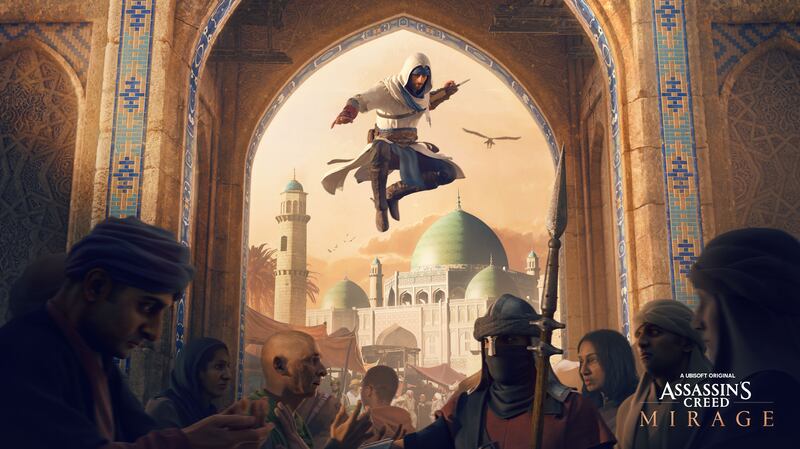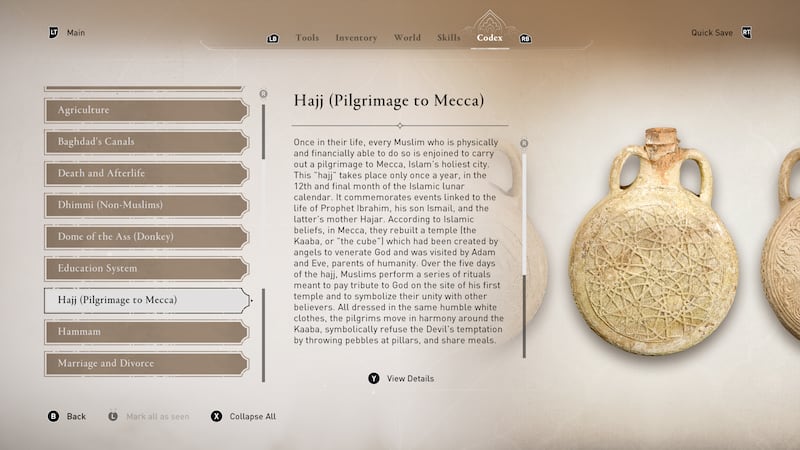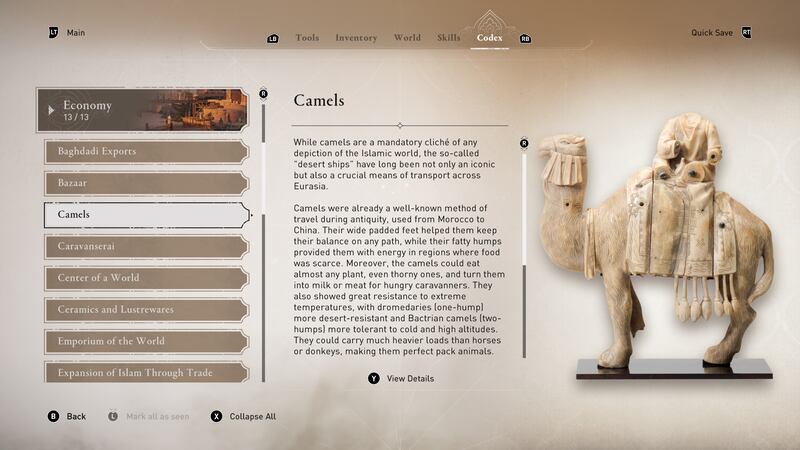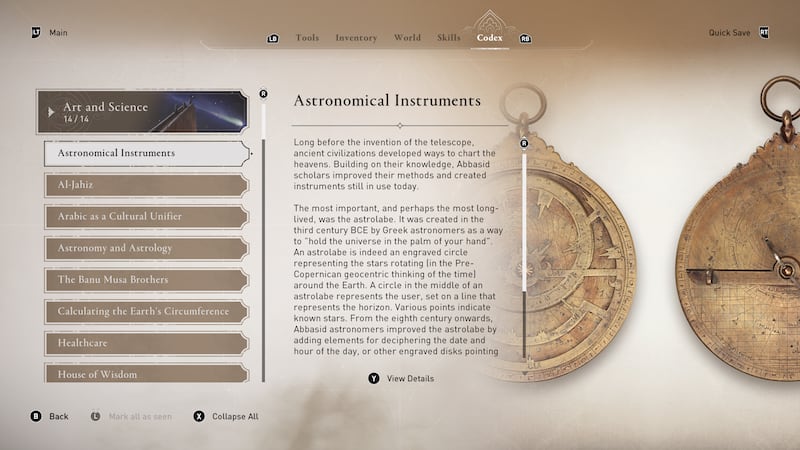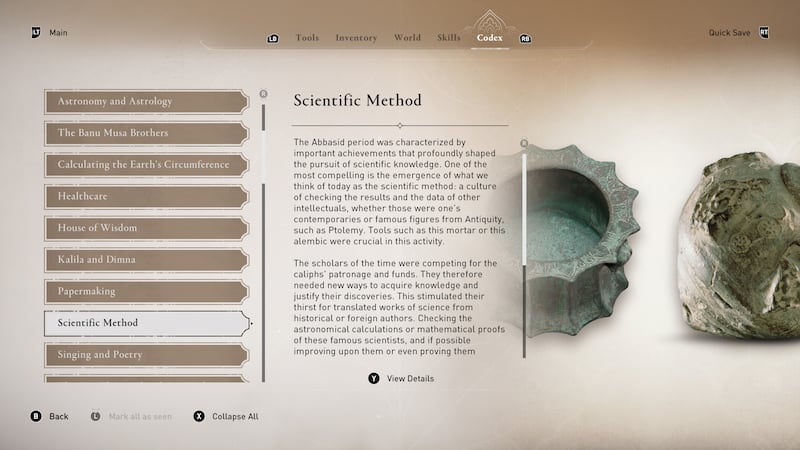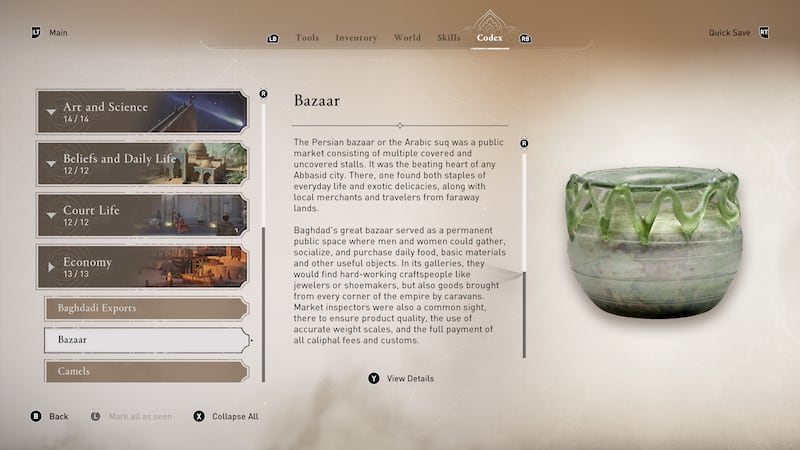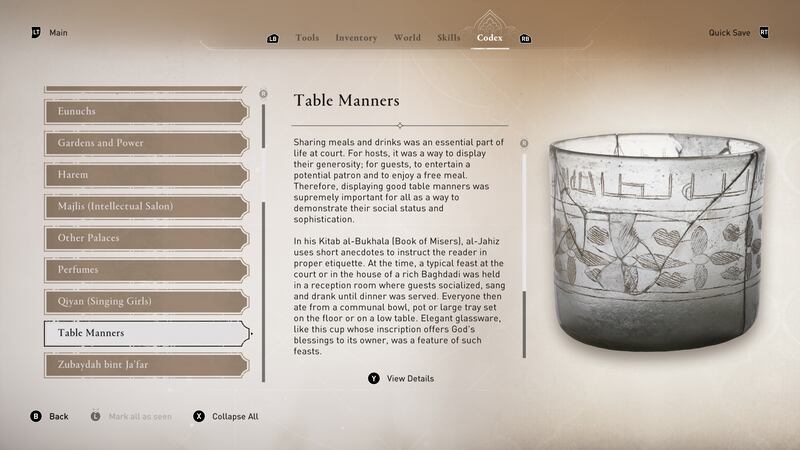An Islamic art historian in the UK has helped game developers recreate the Abbasid Caliphate in the latest Assassin’s Creed instalment.
Dr Glaire Anderson, an award-winning author and expert in Islamic architecture, art and history of the caliphal period (650-1250), worked with Ubisoft on Assassin’s Creed Mirage, using her knowledge to help the developer build the immersive digital world of ninth-century Baghdad.
The University of Edinburgh art historian originally began using video game engines as part of her research to visualise historical environments and architecture, but it was her 11-year-old son who informed her of Assassin's Creed, whose creators work with experts to recreate places in the games.
“I showed my work to my son and he said, ‘Oh, mum, if you’re interested in that kind of stuff, you should check out Assassin’s Creed!’ I did and I loved how they were visualising medieval Islamic monuments and urban environments,” she said.
“Then, when I learnt they were engaging with museums and academics to enhance the educational aspects of their games, I reached out to Ubisoft’s head of world-building, historian Maxime Durand.
“The university’s commercialisation service, Edinburgh Innovations, helped me formalise the relationship.”
She described the effect on her work as “dramatic”.

“Collaborating with Ubisoft has allowed me to bring my work out of the university and share it with a broader audience of people of all ages who play video games,” she said.
“I respect what Ubisoft have achieved and how they are helping people engage with history.”
Since it first launched in 2007, the Assassin's Creed series has sold more than 200 million games worldwide and has become known for having some of the most engrossing storytelling in the industry.
The latest instalment of the video game franchise, due for release in October, follows the early years of protagonist Basim Ibn Is’haq in the capital of the Abbasid Caliphate.
It will have a new educational feature called History of Baghdad, which offers players an interactive way to learn more about the game’s rich setting.
“The History of Baghdad is our new historical codex feature – information that players can find in the world, telling them about the culture, tradition and daily life of ninth-century Baghdad,” said Stephane Boudon, creative director for Assassin’s Creed Mirage at Ubisoft Bordeaux.
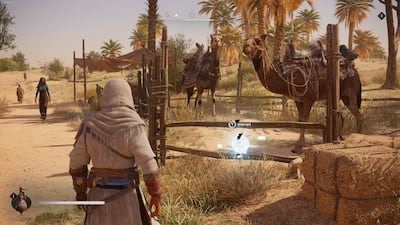
“In addition to providing intensive seminars on medieval Islamic art to the Ubisoft in-house history team, Glaire and her students contributed directly to this feature, reviewing texts written by our in-house historian Raphael Weyland, and suggesting illustrations from museum collections.”
Dr Anderson was one of four key advisers on the development, alongside Vanessa Van Renterghem, specialist of medieval Baghdad, as well as Dr Weyland and Ali Olomi, who both focus on Islamic history.
Two postgraduate researchers also worked with Dr Anderson as part of the University of Edinburgh’s Digital Lab for Islamic Visual Culture and Collections, and their research was supported by grants from the Economic and Social Research Council and the Barakat Trust.
“I've taught approximately 4,000 university students in the US and the UK about the architecture, art and history of the caliphal period over the course of my career,” Dr Anderson said.
“That's ordinary impact. Ubisoft's Assassin's Creed games have introduced millions of players of all ages around the globe to medieval Islamic art, architecture and history. That's extraordinary impact.”
Players can discover 66 historical sites throughout the in-game world of Assassin’s Creed Mirage, each serving as a portal to insights into the era, divided into five categories: Art and Science; Beliefs and Daily Life; Court Life; Economy; and Government.
Each entry has been crafted in collaboration with historians and expert advisers and is illustrated by images carefully selected among the collections of eminent museums and institutions, including: the David Collection in Copenhagen, the Institut du monde arabe in Paris, the Khalili Collections that have been exhibited worldwide; and Shangri La Museum of Islamic Art, Culture and Design at the centre of the Doris Duke Foundation in Honolulu.
Thierry Noel, head of Ubisoft’s humanities and inspiration department, said: “Assassin’s Creed always strives to be a gateway for players to discover more about the fascinating historical setting and eras it explores.
“With information curated by experts, History of Baghdad offers a research-based perspective over ninth-century Baghdad and the Abbasid Empire, tackling preconceptions and cliches often associated with them.
“Our collaboration with esteemed partners and experts to bring this feature to life in Assassin's Creed Mirage further highlights the commitment to authenticity and accuracy that is a hallmark of the series.”
